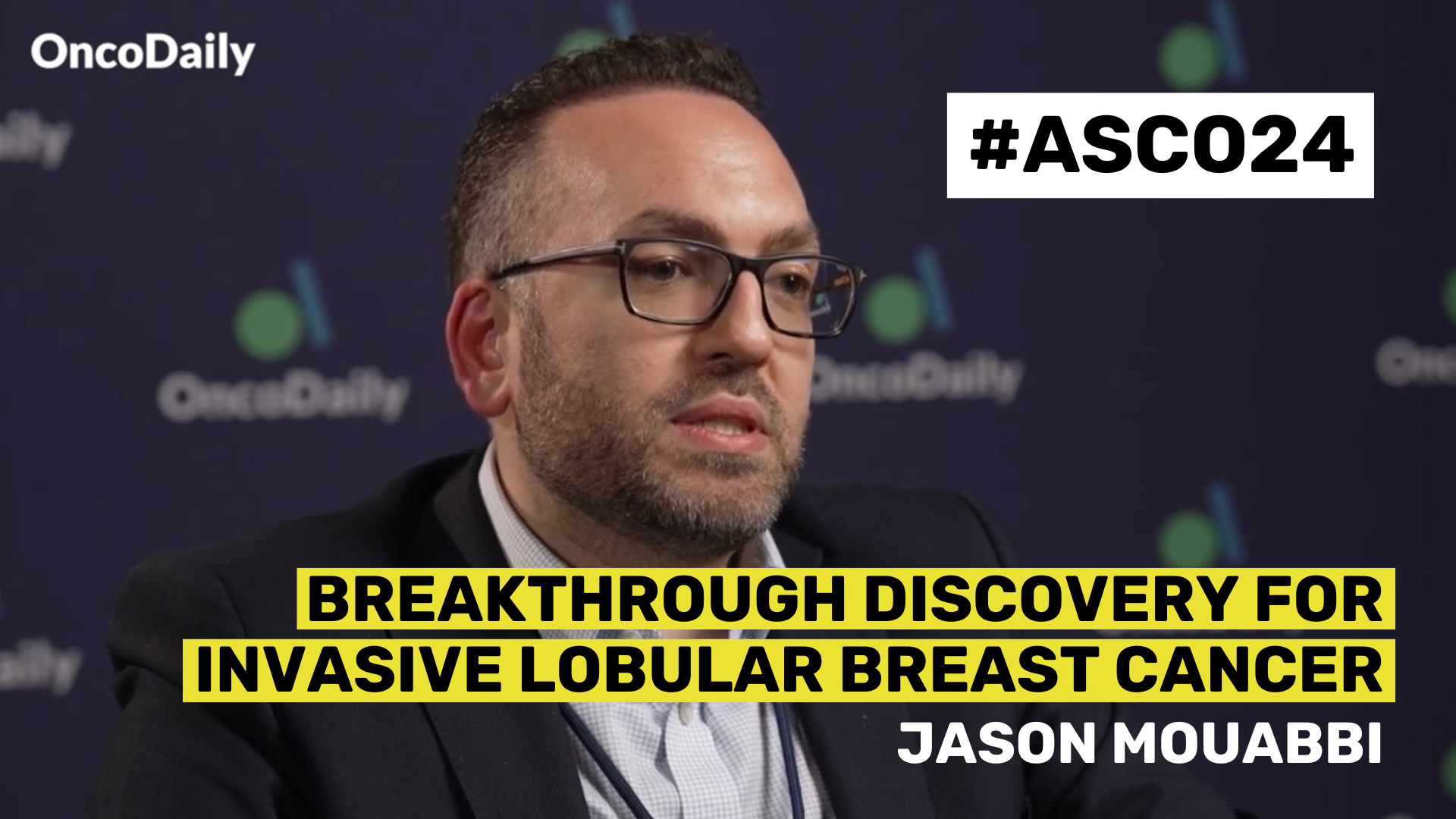The American Society of Clinical Oncology (ASCO) Annual Meeting is one of the largest and most prestigious conferences in the field of oncology. This year, the meeting took place from May 31 to June 4 in Chicago, Illinois. The event gathers oncologists, researchers, and healthcare professionals from around the world to discuss the latest advancements in cancer research, treatment, and patient care. Keynote sessions, research presentations, and panel discussions are typically part of the agenda, providing attendees with valuable insights into emerging trends and innovations in oncology.
This year, OncoDaily was at ASCO 2024 for the first time covering the meeting on-site. We had the pleasure of interviewing researchers who summarized the highlights of their work.
In this video, Dr. Jason Mouabbi from MD Anderson Cancer Center shares insights on ‘The multiomic tumor microenvironment landscape of invasive lobular carcinoma of the breast.‘
I’m Jason Mouabbi. I’m a breast medical oncologist at the University of Texas MD Anderson Cancer Center and I focus on a special subtype of breast cancer called invasive lobular carcinoma, an understudied subtype of breast cancer that is important and that affect about 15% of patients with breast cancer. Today’s presentation was about unmasking the tumor microenvironment of such cancer and what we found is something that is very interesting and something that’s potentially actionable.
What we found is that lobular breast cancer is a significant subgroup of them have an immune enriched microenvironment and another subtype that’s also important that about 30% of patients are highly vascularized and contain a lot of new blood vessels. These are very important findings because they can really unmask potentials for novel therapies. Because historically the way we were looking at cancer cells is looking at them internally and looking at some mutation at the genetic levels and some transcriptions of different genes into proteins.
However, when you look at it internally, it’s like looking at the cell in suspension meaning that the cell like it doesn’t belong to any environment which is wrong because a cell is present in a vast microenvironment that is rich in immune cells because the function of the immune system is to find those cancer cells, attack them, and eliminate them.
Why is the tumor evading the cancer is very important for the future of the fight against cancer and this is a strong step toward that direction. What we found is potentially actionable using immunotherapies, given that we found that about 50% are immune enriched and because another substantial subtype is highly vascularized, we can target it with anti-angiogenesis agents.
These are agents that target blood vessel formation. Those therapies are readily available because they are used in other cancers. Now we want to bring them to breast cancer and specifically to invasive lobular carcinoma.
And finally, we have a proof of concept to do this.
More videos and content from ASCO 2024 on OncoDaily.
